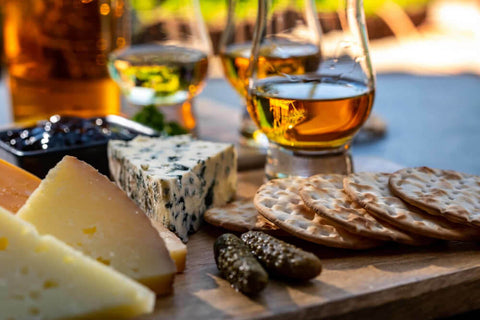How Independent Distillers are Changing the Face of the Whisky Business
Envision a group of creative types, business owners, and dancers enjoying a Thursday night at a trendy Hollywood rooftop club. There's a buzz in the air, and it's impossible to ignore the attendees' outrageous homemade costumes, asymmetrical hairstyles, and mod hats. An altar bar decked out with cocktails, candles, and big crystals awaits you as you make your way past the mostly female crowd. Background dancers by performance artists heighten the already ethereal and mystical mood. This feels like something out of Warhol's Factory crossed with the occult atmosphere of The Witches of Eastwick.
But why do we need to celebrate?
The image of the spirits industry in the past was typically of a room full of men in suits, all of whom were wearing suits themselves. This antiquated reputation, however, is being modernized because to the craft distillery movement. It's evolving into a phenomena that is more polished and sophisticated, appealing to women. In the artisan spirits market, women are now in the driver's seat, pioneering the creation of enterprises with fascinating backstories that speak to a particular way of life, socioeconomic group, or cultural background. They're making their mark in a field where men like Don Draper were previously the norm.

The craft distilling sector is being revolutionized by women, and it's nothing like the conventional old boys' club. Women from all walks of life, including the arts, dancing, and entrepreneurship, are banding together to launch distilleries that represent a specific community, identity, or worldview. These labels stand out from the competition and are popular among the "Food Generation" customers who are conscious of the items they buy and their impact on the world. One such lady who gave up a lucrative career to pursue her interest in distilling is Bridget Firtle, owner of The Noble Experiment in Brooklyn. The success of women like Firtle is contributing to the development of a more progressive and nuanced spirits scene. This article discusses how the American liquor industry is evolving to become more welcoming to women.
The artisan spirits industry has experienced phenomenal growth during the past five years. The market's 2015 retail sales of $2.4 billion, as reported by IWSR, a consumer research company, represent a staggering 27% rise in volume and value compared to those of 2010. Exports of craft spirits reached 523,000 cases last year, accounting for more than 10% of added volume to U.S. craft distillers' overall sales, reflecting the increasing demand for these artisanal beverages. The number of artisan alcohol distilleries in the United States has skyrocketed to an astonishing 1,300, virtually tripling in size over the past decade. More are expected to join the fray as well; projections put the number of artisan distillers at around 2,800 by the year 2020.
What's the reason for this expansion? The sales of spirits, which have historically been subject to more stringent legislation than those of beer and wine, have been on the rise in recent years. States like New York, however, are already embracing the practice of supporting local, craft distillers. According to American Craft Spirits Association director of communications Alexandra Sklansky: "There are a ton of startups and new firms being formed every day." Many women are at the head of their fields, but they aren't being celebrated for being women; rather, their achievements and insights are being praised because they are exceptional.
Craft distilleries are dominating the spirits industry by using creative approaches to product development, marketing, and distribution. Many businesses, like the burgeoning craft beer industry, are trying to stand out from the pack by appealing to the "Food Generation," a demographic of customers who are more interested in learning more about where their food comes from, what goes into it, and why.
The last ten years have seen a revival in the cocktail industry, thanks to people's growing appreciation for unique, locally produced ingredients. New York City bars like Milk & Honey, Death & Co, and Pegu Club are gaining recognition for their innovative cocktail menus that prominently utilize handmade spirits. Mezcal, bourbon, and artisan whiskey have all made their way into cocktail culture and can be found in bars throughout the world today.
Brooklyn's The Noble Experiment distillery owner Bridget Firtle thinks the rise of this trend is great news for small, independent distilleries like hers. "Consumers aren't only ordering rum and coke or vodka soda anymore," she says. Those that have a genuine passion for creating cocktails have handpicked the menus, which has helped us gain notoriety.
Craft distilleries have injected fresh life into the whiskey business by challenging the status quo and shaking up the industry's entrenched companies. These handmade distillers have a leg up on the competition because they provide spirits with a backstory, ingredients, and flavors that set them distinct from the mainstream. With this growing movement, it's easy to see how the whiskey industry is shifting, and it bodes well for the future of the spirit as these pioneering distilleries continue to push the envelope. If you're searching for something new to try the next time you want to relax with a glass of whiskey, you might want to look into the booming craft distilling scene.